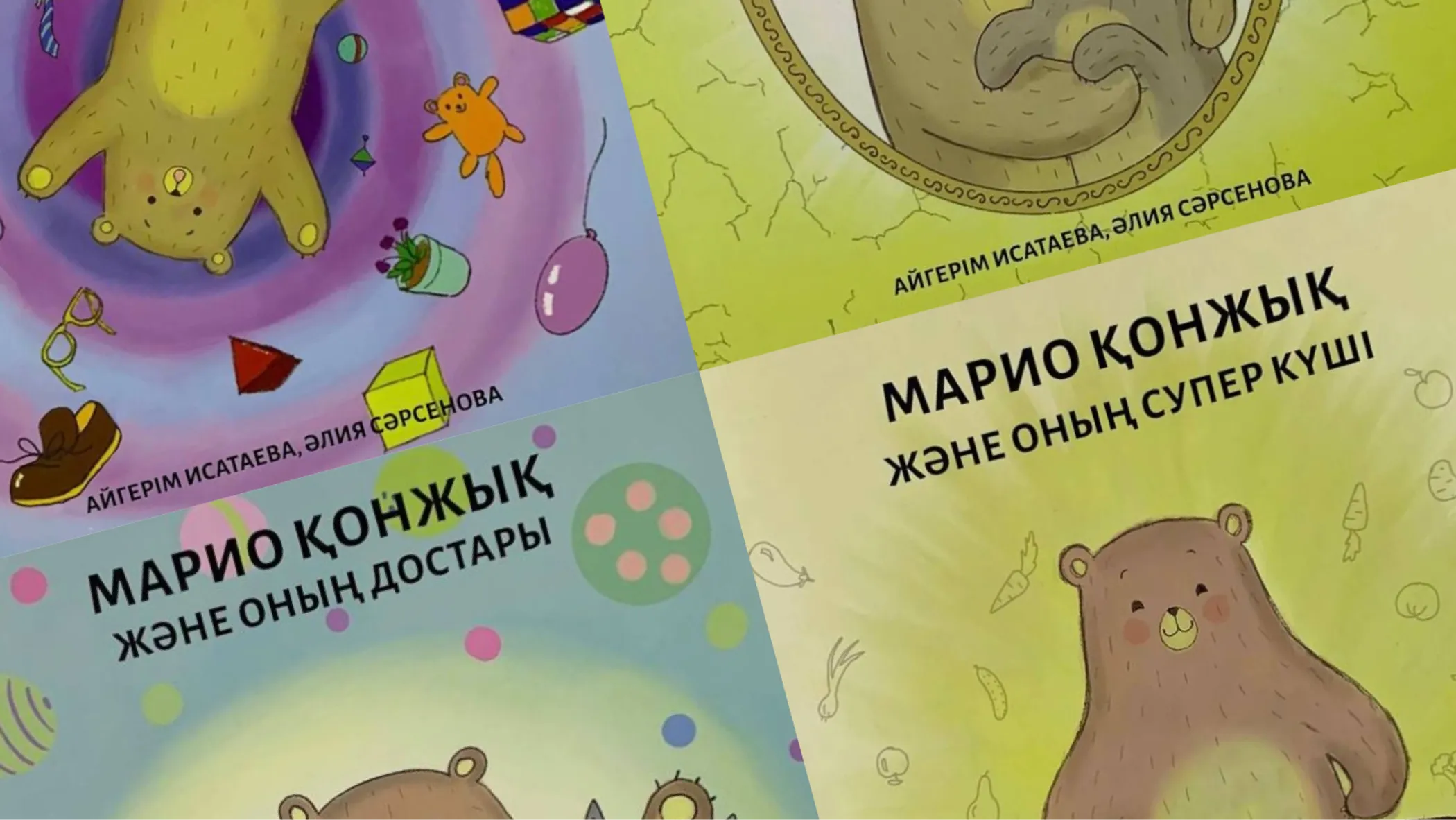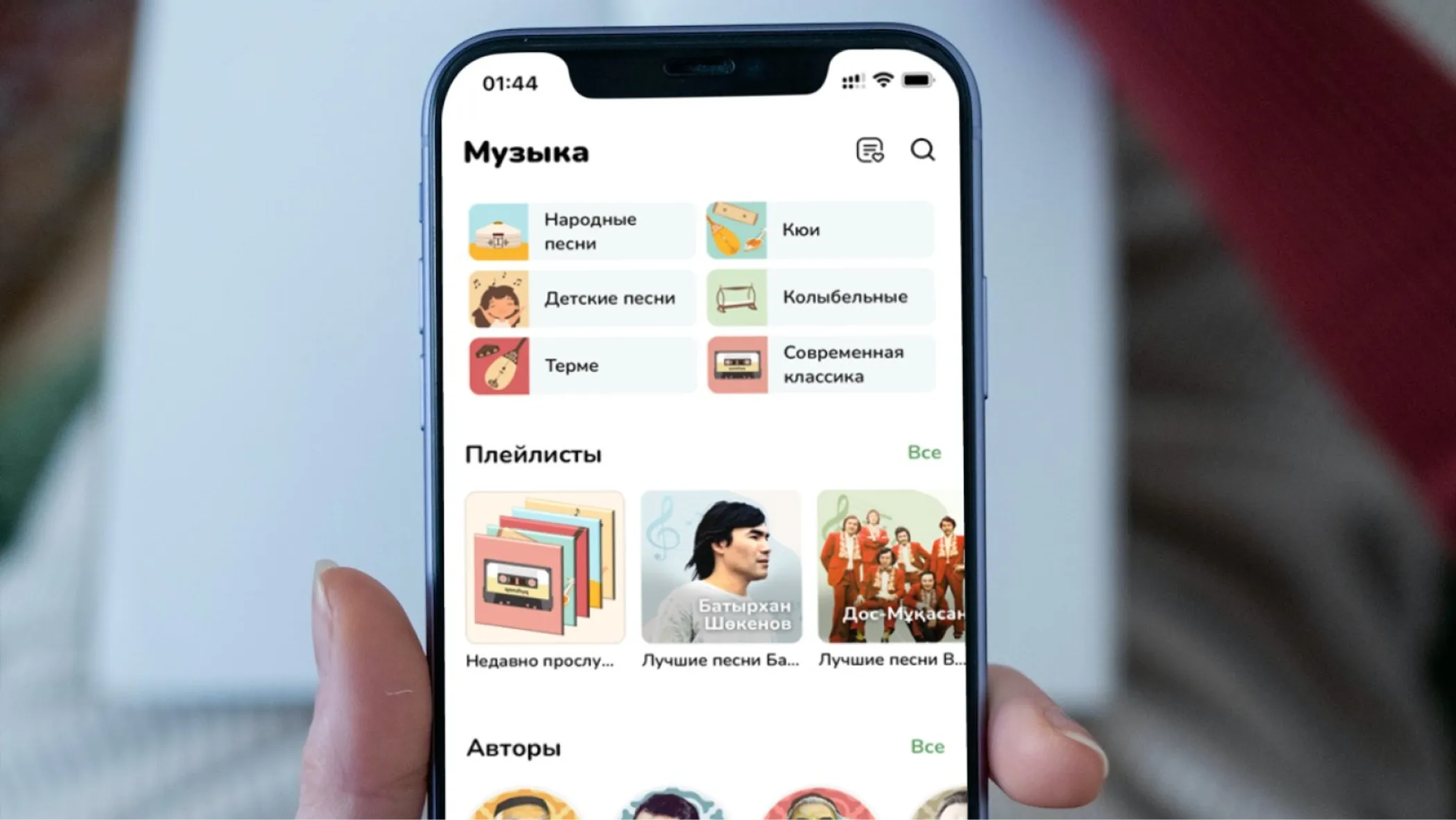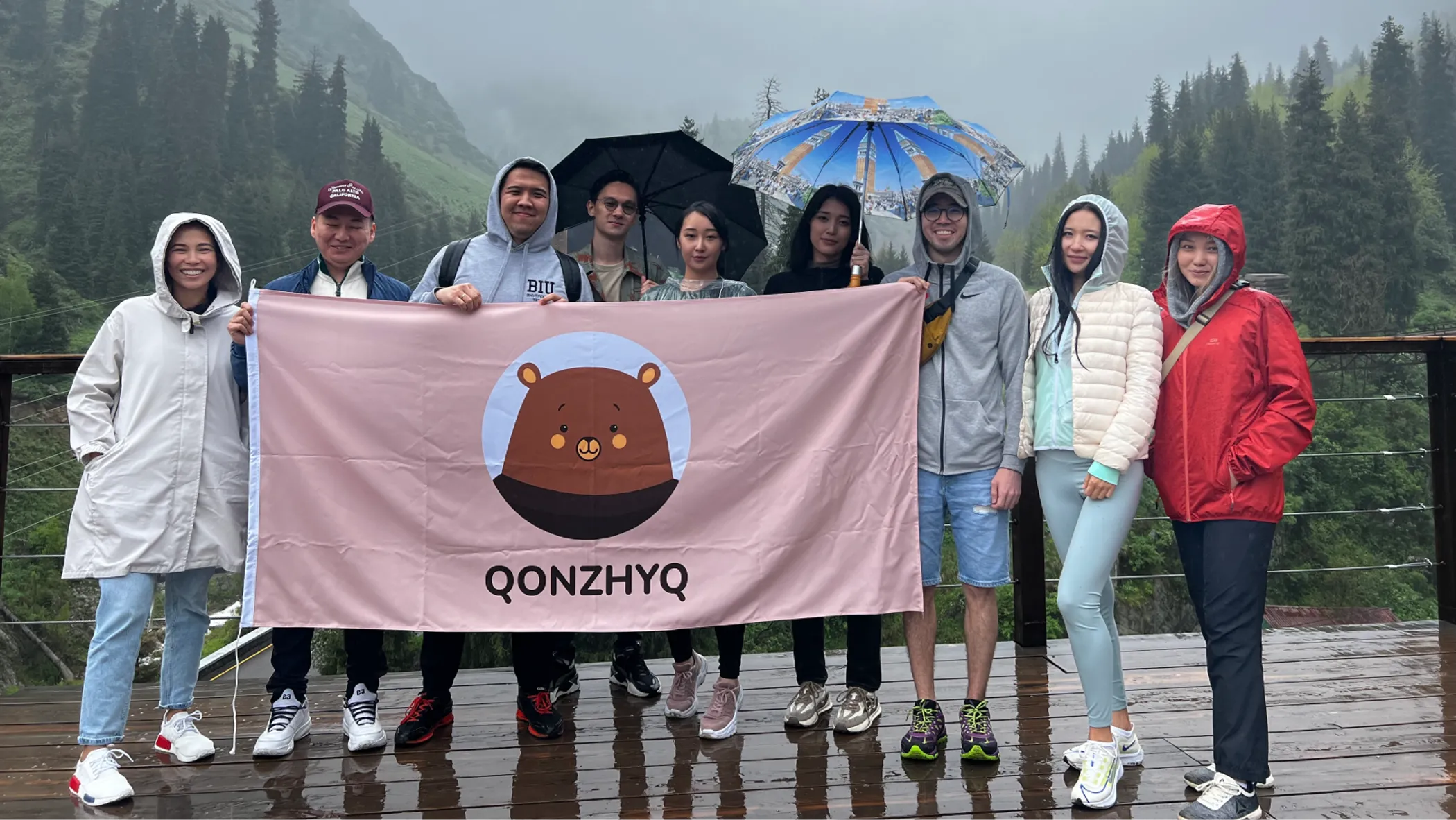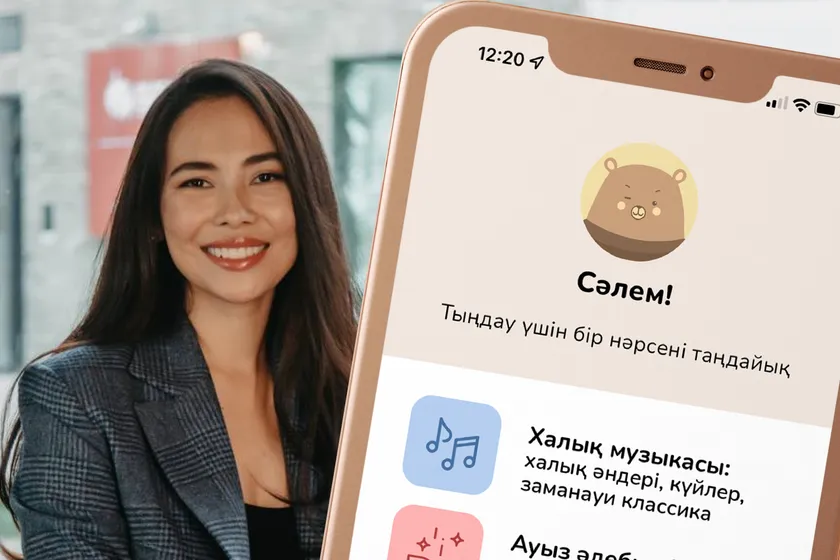Our culture is becoming more popular beyond Kazakhstan, but it’s not a secret that there’s still work to do. First and foremost, we need a space for people to immerse themselves in our language and way of life. Imagine that space as an online platform where one can have access to a vast library of Kazakh folklore recordings, traditional music and Kazakh language courses for kids.
The ever-expanding content of the Qonzhyq App is tied to many childhood memories of the people of Kazakhstan. It may also be the thing that will bridge the gap between our culture and others. Aigerim Issatayeva, a businesswoman with several projects under her belt, started this endeavor with the intention to preserve Kazakhstan’s cultural heritage and provide easy access to a considerable archive through an easy-to-use application.
Launched in August, the four-month-old Qonzhyq (bear in Kazakh) has already attracted over 100,000 people, with 7,000 online users per day. The inspiration for the app came from a yurt-shaped audio player, says Aigerim, who sat down to talk with QazMonitor about the product’s origin story, the team’s struggle with finding its audience, and the app’s immersive experience.

Access to fairytales
How did you get into Kazakh folklore?
It’s a long story. I graduated from a Russian school in Aktobe and my husband graduated from a Kazakh school. When we had our baby daughter in 2014, we decided, as a family principle, that our children should know the Kazakh language.
In my effort to maintain a Kazakh-speaking environment for my child, I searched for Kazakh-speaking tutors but found it difficult since many of them only spoke in Russian. There were few quality books [in Kazakh]. Some books had really difficult wording, especially for kids, and others contained pictures straight out of a horror movie (laughs).
Then, in 2017-2018, my friend Aliya Sarsenova and I decided to write children's stories. We came up with a teddy bear named Mario. Some people were like: "Why Mario? It's a foreign name!". The thing is, my daughter's name is Mariam, so at home we call her [Mario].

We produced five fairytales about the bear cub together with the help of a psychologist and my sister Dana Kalimova, who wrote the stories. They were released in Kazakh and Russian.
Books are hard to sell because they're a luxury for Kazakhstan’s middle class, and I’ve realized that it’s not really affordable for kids outside of Astana and Almaty. Bookstores like Meloman or boutiques like “Mama, pochitay” are mostly here [in those two cities]. Whenever we received orders from other cities, we had to make special deliveries, which isn’t financially or logistically efficient, especially for those who live in remote villages.
That's why I thought of something that would be accessible to everyone.

What inspired the idea of Qonzhyq?
Back in 2014, Mariam’s late great-grandmother Khazira gifted us an electronic toy yurt that played traditional fairy tales, songs, and lullabies. We took it with us wherever we went—whether it was to Dubai or grandma’s house in Aktobe. It just so happened that I got in touch with the man who created the yurt. Then, in 2021, I thought, “why not make this into an app?” I bought the intellectual rights from the creator, Galymbek Kyzyrbek (a kandas from China), and we began our work.
An app to immerse in culture
What is the thought process behind organizing such an extensive library of content?
The initial idea was to have a “golden collection of Kazakh folklore”. You have to really dig around the Internet, and it’s not like there’s a “Kazakh Spotify” where you find all our classics in one place. The same goes for fairy tales: if you don't buy the books from Meloman, you won’t find them online. So, my main goal was to preserve all this and make it accessible on mobile.
Then, I had another idea, and it’s that learning a language requires full immersion: you listen to music, you watch soap operas, you read books. I figured if I want to master English I should go to England, right? But how do I do that with Kazakh? You can’t immerse yourself in the language living in the downtowns of Almaty and Astana. But I think we have achieved this with Qonzhyq. We included an education tab for kids to learn letters and numbers. We will be developing the app further.
It's not even so much about the language anymore as it is about identity and what it means to be Kazakh.
We were told we were tinkering with the app too much and that it’s better to have one feature. But you can’t immerse yourself with one feature only. You have to cover everything, not only language but the culture as a whole.
Qonzhyq’s audience is you
Which part of the app are you prioritizing now?
Right now, we are working on the Early Learning section with all the IT and designer staff on it. The team is also in talks with musicians. We try to choose those whom we grew up with—like Batyrkhan Shukenov, for example. I heard his songs and so have you and your parents, but my daughter and her generation may grow up not knowing who he is. He was THE artist of our time, so, of course, he should be in the collection.

Lately, we are putting more emphasis on poetry since it’s part of our culture to hold poetry readings, like Abai Readings. We’ve already uploaded the files that were in good quality and are planning on selecting classical poems to record soon.
Who do you see as your primary audience?
That's the difficult part. We launched in Semey first. You don’t get a second try in Astana or Almaty, so we decided to test ourselves in smaller cities. We thought we could get an understanding of our market and user base there.
I realized that our user is just a regular Kazakh citizen.

Our team was puzzled. There’s no concrete pattern. You see, our users could be a child, an adult, or a person with a family. It could be a young guy who goes, “I listen to songs on Qonzhyq whenever I hit the gym!” It also could be a businessman in his 50s who says, “I fall asleep to lullabies!” (laughs)
We checked to see which feature of the app was the most popular: fairy tales, music, or learning. But they’re all equally popular.
How do you envision Qonzhyq in the future? The app is currently positioned as an immersive experience but, at the same time, it's an app focused on children.
I want to get the app to a point where it becomes "advanced" enough to be self-sustaining – so that it could pay for servers and have people freely use it. I want to leave something that you can refer to at any time. I want to get the app to the point where it grows up to be an independent child.










